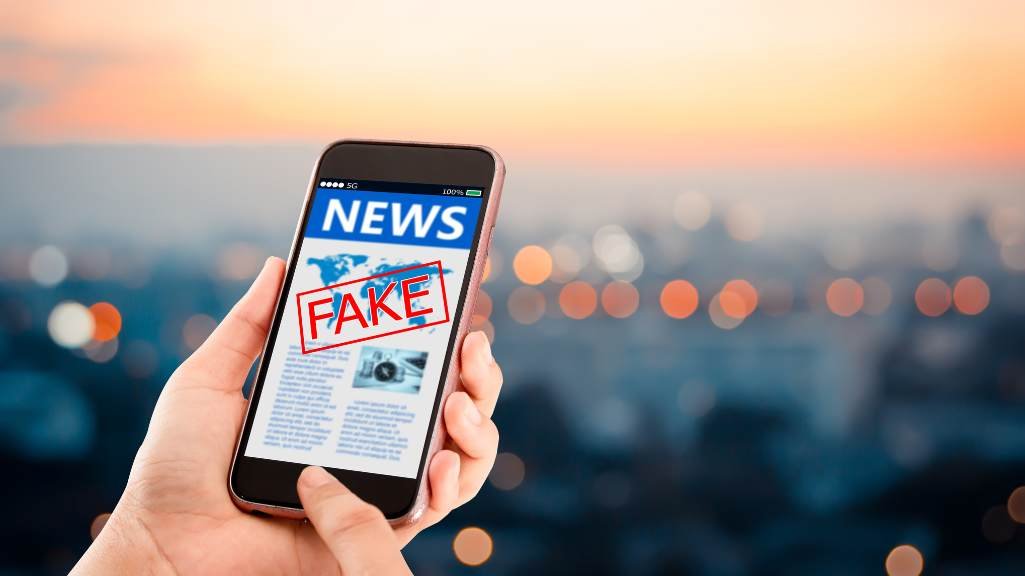Fighting Fake News: Strategies for Navigating a Misinformation-Flooded World
Adina Anderson
. 2 min read
In today's digital age, the proliferation of fake news has become a pervasive challenge. Misinformation spreads rapidly, impacting public opinion, decision-making, and even threatening social cohesion. To combat this growing problem, it is crucial to arm ourselves with effective strategies for identifying, verifying, and navigating through the sea of false information. Additionally, the rise of online platforms, including social media and omegle chat, has amplified the spread of fake news, making media literacy and fact-checking even more essential. This article aims to equip readers with the tools they need to become savvy consumers of information and critical thinkers in a misinformation-flooded world, whether they encounter it on social media feeds or anonymous chat platforms like Omegle.

Understanding the Anatomy of Fake News
Before we can effectively combat fake news, we must first understand how it is crafted and disseminated. We'll explore the psychology behind the creation of misinformation, the tactics used to manipulate public perception, and the motivations that drive the spread of false narratives.
Media Literacy: Building Resilience Against Misinformation
Media literacy is a powerful defense against fake news. This section will delve into the importance of developing critical thinking skills and how to evaluate information sources for credibility. Learn how to spot red flags, fact-check claims, and differentiate between legitimate news and deceptive content.
The Role of Social Media in Disseminating Misinformation
Social media platforms play a significant role in the spread of fake news. We'll examine how algorithms, echo chambers, and the virality of content contribute to the rapid dissemination of misinformation. Additionally, we'll discuss the responsibility of social media users in curbing the spread of false information.
Fact-Checking and Verification: Separating Truth from Fiction
Fact-checking is a crucial step in combating misinformation. This section will introduce fact-checking resources and methods to verify the accuracy of information. Discover the importance of cross-referencing information and relying on reputable sources to make informed decisions.
Combating Cognitive Biases: Overcoming the Influence of Fake News
Cognitive biases can cloud our judgment and make us susceptible to fake news. We'll explore common biases that impact our perception of information, and strategies to mitigate their influence. By understanding these biases, we can become more discerning consumers of news and information.
Promoting Digital Civility and Responsible Sharing
The way we engage with information online has an impact on the spread of fake news. This section emphasizes the importance of digital civility and responsible sharing. We'll discuss ways to promote constructive conversations and combat the spread of misinformation in our online interactions.
Conclusion
Fighting Fake News: Strategies for Navigating a Misinformation-Flooded World is a call to action for individuals to take charge of their information consumption. By understanding the tactics used to spread misinformation and adopting critical thinking skills, we can navigate through the sea of fake news and make well-informed decisions. In an era where misinformation poses a significant threat to informed discourse and societal cohesion, it is imperative that we equip ourselves with the tools to be responsible and informed digital citizens. Together, we can build a more truth-conscious and resilient world.
More Stories from
Exploring the Uncharted: Speculative Insights into the World Beyond 2021
This article provides a brief overview of potential geopolitical shifts, technological advancements, environmental concerns, health challenges, economic developments.
Racial Justice and Inclusivity: Promoting Equality in Society
Explore the vital journey towards racial justice and inclusivity as we uncover the challenges faced by marginalized communities and the transformative power of inclusivity.
The Enchanting Rhododendron: Himachal Pradesh's State Flower
Discover the captivating Rhododendron, the state flower of Himachal Pradesh, India. This vibrant evergreen shrub, native to the Himalayas, paints the landscape with breathtaking colors each spring.
Masroor Rock Cut Temple in Kangra, Himachal Pradesh: A Marvel of Ancient Architecture
Discover the fascinating world of the Masroor Rock Cut Temple, an architectural gem carved into the sandstone cliffs of Kangra, Himachal Pradesh.
Culinary Adventures: Exploring the World's Unique Food Cultures
From vibrant street food delights to treasured family recipes passed down through generations, discover the rich tapestry of global gastronomy.











.png?width=40&aspect_ratio=1:1)

.png?width=40&aspect_ratio=1:1)